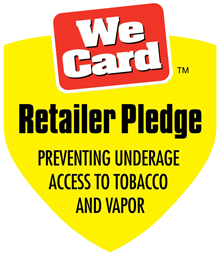D8
What Is Delta-8-THC?
DELTA-8-THC IS FEDERALLY LEGAL
Purchasing D8 does not require a medical card, but a valid ID reflecting 21+ years of age is required. Before taking delta 8, you should always check with state laws, as laws regarding cannabis are prone to sudden change. Delta-8-THC is currently illegal in Alaska, Arizona, Arkansas, Colorado, Delaware, Idaho, Iowa, Mississippi, Montana, New York, Rhode Island, Utah.
Read our full legal disclaimer HERE, and certificate of analysis HERE.
Delta 8 THC has a negative stigma due to everything we’ve been trained to think over the past 90 years regarding Delta 9 THC, but Delta 8 THC beyond having a different chemical composition, effect on human metabolism and consumption, is federally legal and legal in most states in the USA thanks to H.R. 2: The Agricultural Improvement Act of 2018, also known as the 2018 Farm Bill.
The 2018 Farm Bill specifically made all derivatives, isomers, and cannabinoids in hemp legal, provided the final product has less than 0.3% Delta 9 THC. For reference, delta 8 THC is an isomer of delta 9 THC, a derivative of hemp and CBD, a cannabinoid found in hemp, and is ultimately contained in our extracts with less than 0.3% Delta 9 THC.
Regarding the Federal Analogue Act, which is part of the Controlled Substances Act, the 2018 Farm Bill is especially helpful, as it also includes an amendment to the Controlled Substances Act, explicitly removing all tetrahydrocannabinols found in hemp.
The relevant language from the 2018 Farm Bill is listed below, along with links to the original text.
Note that the information contained on this page and website is for informational purposes only. It is not legal advice. Read our full legal disclaimer HERE. While we try to stay as up to date as possible on all state and federal laws, the laws, especially at the state level, are constantly changing. You should do your own due diligence and work with a legal professional to ensure you are operating legally in your state or territory at all times.
AGRICULTURE IMPROVEMENT ACT OF 2018 – SUBTITLE G—HEMP PRODUCTION.
SEC. 297A. DEFINITIONS.
(1) HEMP.—The term ‘hemp’ means the plant Cannabis sativa L. and any part of that plant, including the seeds thereof and all derivatives, extracts, cannabinoids, isomers, acids, salts, and salts of isomers, whether growing or not, with a delta9 tetrahydrocannabinol concentration of not more than 0.3 percent on a dry weight basis.
SEC. 12619. CONFORMING CHANGES TO CONTROLLED SUBSTANCES ACT.
(a) IN GENERAL.—Section 102(16) of the Controlled Substances Act (21 U.S.C. 802(16)) is amended—
(1) by striking ‘‘(16) The’’ and inserting ‘‘(16)(A) Subject to subparagraph (B), the’’; and
(2) by striking ‘‘Such term does not include the’’ and inserting the following:
‘‘(B) The term ‘marihuana’ does not include—
‘‘(i) hemp, as defined in section 297A of the Agricultural Marketing Act of 1946; or
‘‘(ii) the’’. (b) TETRAHYDROCANNABINOL.—Schedule I, as set forth in section 202(c) of the Controlled Substances Act (21 U.S.C. 812(c)), is amended in subsection
(c)(17) by inserting after ‘‘Tetrahydrocannabinols’’ the following: ‘‘, except for tetrahydrocannabinols in hemp (as defined under section 297A of the Agricultural Marketing Act of 1946)’’.
Find the full text legal document HERE


